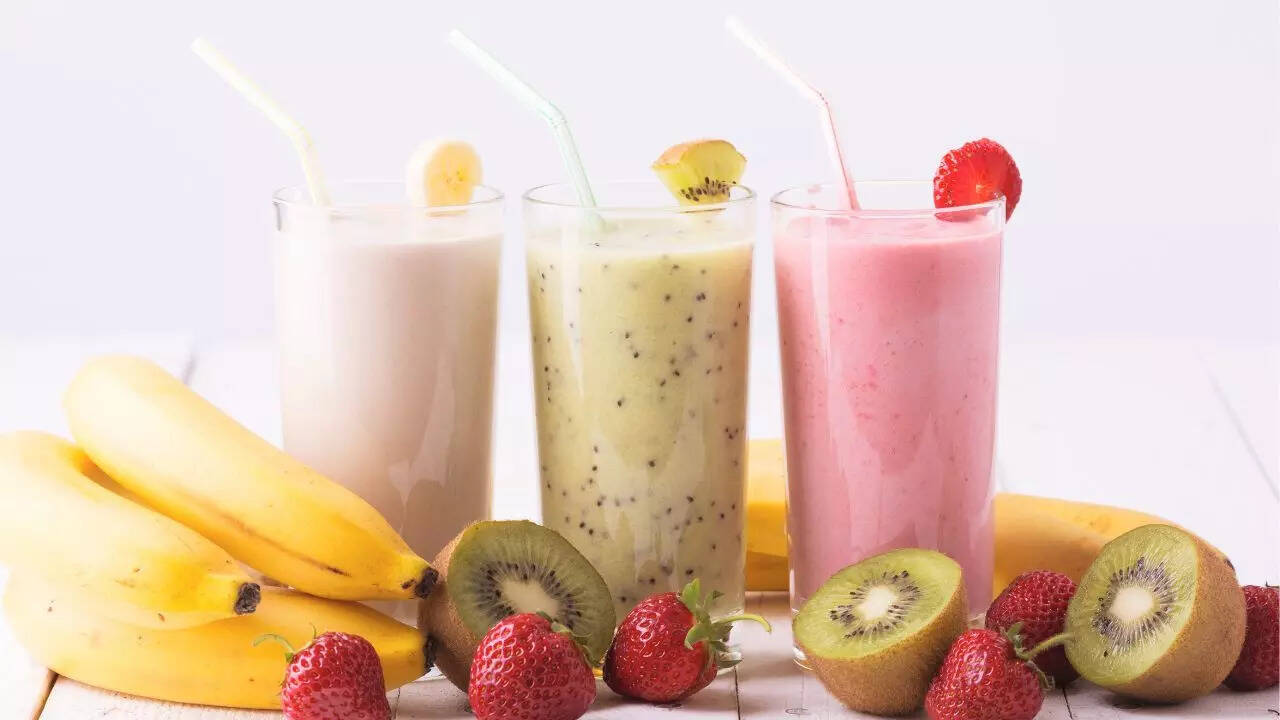Many people assume they are making healthy food choices, but small mistakes can significantly impact the nutritional value of what we eat. Everyday habits, like adding honey to boiling water, peeling fruits unnecessarily, or storing foods incorrectly, can strip essential nutrients and even lead to harmful effects. For example, cooking vegetables the wrong way can destroy antioxidants, and improper storage can reduce freshness and flavour. By making simple adjustments in how we prepare and consume these foods, we can preserve their health benefits and improve overall well-being. In an Instagram post, fitness coach Mankirat Kaur revealed how many of us unknowingly consume common foods incorrectly, diminishing their benefits and sometimes causing discomfort. Here are common food mistakes you might be making and how to fix them.
Impact of diet on mood and productivity
Common food mistakes: How to eat them right for better nutrition
1. Honey: Avoid adding to boiling liquids

Adding honey to boiling water or milk may seem harmless, but high temperatures can destroy its natural enzymes and antioxidants. It may even create harmful compounds when overheated. Tip: Add honey to lukewarm or room-temperature drinks to preserve its health benefits.2. Chocolate: Store cool, not cold

Putting chocolate in the fridge may cause sugar bloom, altering its texture and taste. To maintain its smoothness and flavour, store chocolate in a cool, dry place away from sunlight.3. Broccoli: Steam for maximum nutrients

Boiling broccoli can strip away vitamin C and antioxidants. Instead, light steaming retains more nutrients while keeping it crisp and healthy.4. Apples: Wash thoroughly, don’t peel

Apple skins are packed with fibre, antioxidants, and vitamins. Peeling removes much of these nutrients. Wash apples well to remove wax or chemicals but eat them unpeeled for maximum health benefits.5. Pineapple: Eat the core

Most people throw away the pineapple core, but it’s a rich source of bromelain, an enzyme that aids digestion and reduces inflammation. Blend the core into smoothies for an extra health boost.6. Avocado: Ripen outside the fridge

Refrigerating avocados too early slows the ripening process and affects texture. Keep them at room temperature until ripe, then refrigerate to prolong freshness.7. Lemon: Use zest before juicing

Lemon zest is loaded with flavour and nutrients like vitamin C. Grate the zest before juicing to maximise health benefits and aroma.8. Smoothies: Skip the ice

Adding ice dilutes your smoothie, reducing flavour and nutrients. Use frozen fruits instead for a thicker, nutrient-rich blend.9. Garlic: Let it rest after crushing

Crushed garlic releases allicin, a powerful compound with health benefits. Waiting 5–10 minutes before cooking helps allicin develop fully, boosting garlic’s medicinal properties.10. Tomatoes: Cook to boost lycopene

Cooking tomatoes enhances lycopene absorption, a key antioxidant for heart and skin health. Light cooking is best—avoid overcooking to preserve other nutrients.11. Bread: Don’t refrigerate

Storing bread in the fridge speeds up staling, making it dry and hard. Keep it in an airtight container in a cool spot to maintain softness.12. Kiwi: Eat the skin for fibre

Kiwi skin is edible and rich in fibre and antioxidants. Wash thoroughly and eat with the peel on for extra nutrition.13. Potatoes: Avoid refrigerating raw

Refrigerating raw potatoes converts starch into sugar, altering taste and cooking quality. Store in a cool, dark place instead, as this helps maintain their natural texture, flavour, and nutrient content for longer freshness.14. Cucumber: Eat with the peel

Cucumber skin contains antioxidants and fibre. Wash well and eat unpeeled for maximum health benefits, as the skin is also rich in vitamin K and silica, which support bone strength and promote healthy, glowing skin.15. Tea: Avoid over-steeping

Steeping tea for too long can make it bitter and reduce beneficial antioxidants. Brew for 2–3 minutes for the perfect cup. Using freshly boiled water enhances flavour and preserves maximum nutrients.These small changes in how you prepare and consume foods can significantly improve your nutrient intake and overall well-being. These insights were shared by a health coach in a recent Instagram post, highlighting how everyday habits impact health in surprising ways.Also read | 5 foods to naturally improve insulin sensitivity according to Ayurveda




